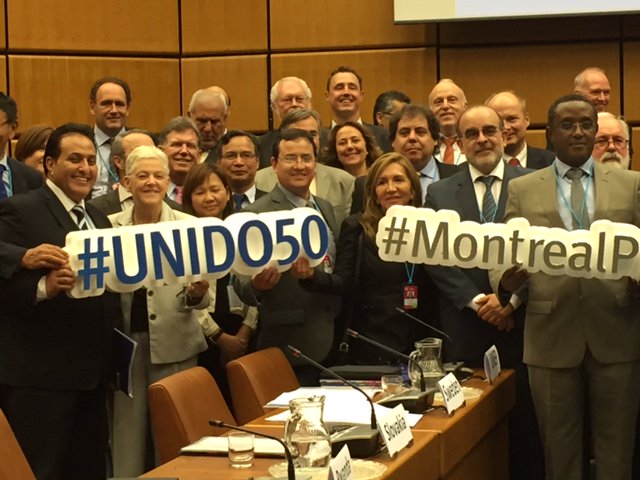Civil society organisations have welcome the progress made at the international negotiations for phasing down hydrofluorocarbons (HFCs) which ended on a high at the weekend in Vienna, Austria, where countries reaffirmed their commitments and sent what looked like a strong signal that climate action is a priority following the signing of the Paris Agreement.

An agreement to amend the Montreal Protocol to cut potent heat-trapping chemicals used in refrigerants, air-conditioners and insulants has been nearly seven years in the making and now seems highly likely to be settled this year.
Following these latest round of negotiations, a deal will likely be struck when the Parties to the Montreal Protocol meet in October in Kigali, Rwanda. Observers believe that It may be the most important climate action of the year and demonstrate a united front towards fighting climate change just weeks before countries meet in Morocco in November for COP 22.
“An agreement this year to phasedown future consumption and production of HFCs would be a huge climate victory. China is working constructively with the US, Latin America, Europe, and other parties to reach a deal that will provide a clear timetable for transitioning to climate-friendly alternatives and strengthen finance for developing countries’ transitions,” said Alvin Lin, China Climate and Energy Policy Director, NRDC China.
Expectations from Vienna were high as negotiators drafted the language of the agreement and worked on resolving details pertaining to additional funding to assist developing countries stay on track with their HFC commitments, calculating baselines, and determining timelines and schedules to freeze HFCs.
“It’s been great to see countries across the board show increasing flexibility to resolve some of the difficult issues. Specifically, progress has been made on agreeing an early freeze date for ending the use of HFCs, a baseline from which to start the phasedown and potential national reduction targets,” said Benson Ireri, Senior Advocacy and Policy Officer, Climate Change and Sustainable Agriculture, Africa Division, Christian Aid.
While Climate Action Network commends the progress in Vienna and little now seems to stands in the way to Kigali, the group stressed that it is imperative that countries stay focused on an ambitious agreement by working constructively to fill the gaps that remain and not losing sight of the fact that phasing down HFCs, the fastest growing greenhouse gases, could help avoid 0.5C warming by 2100.
“Though countries are ready to sign an agreement to phasedown HFCs this year, the proposals on the table are not ambitious enough. Countries need to agree on an ambitious phasedown schedule
that will allow rapid reduction in HFC use in developed countries and enable developing countries to leapfrog to safer, energy efficient alternatives. This is the only way the Montreal Protocol can meaningfully contribute to reducing global warming,” said Chandra Bhushan, Deputy Director General, Centre for Science and Environment, India.
